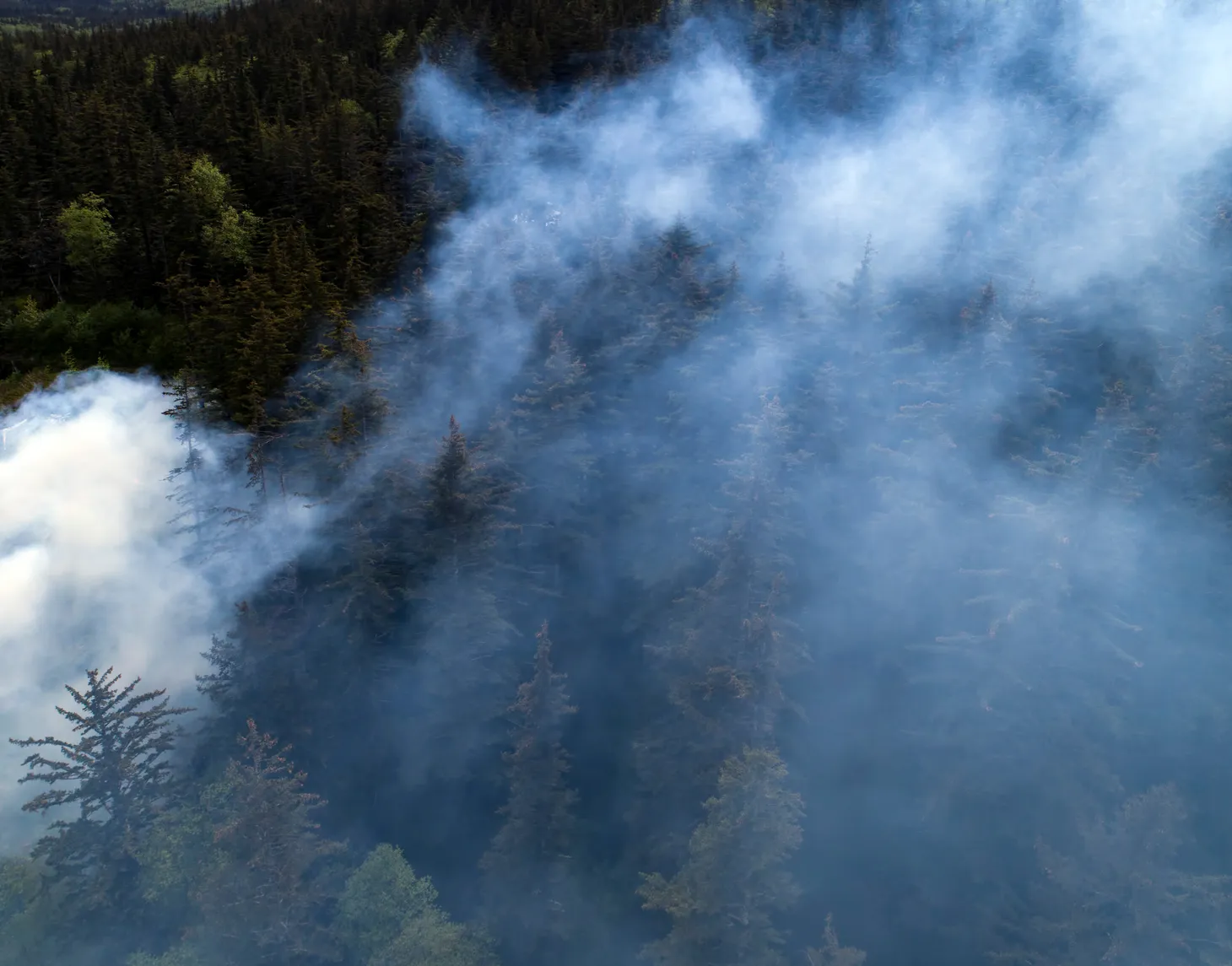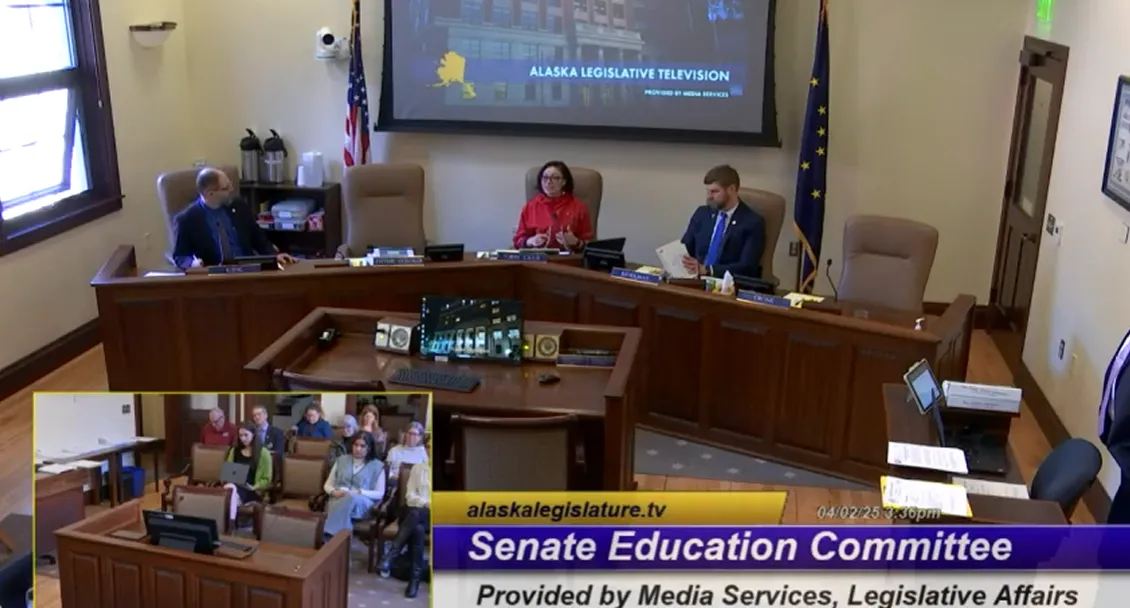Day 3: 'Significant concerns that I cannot overlook.'
In one of the first tests of the Alaska delegation's character during the second Trump presidency, Murkowski stood up and the rest fell in line.
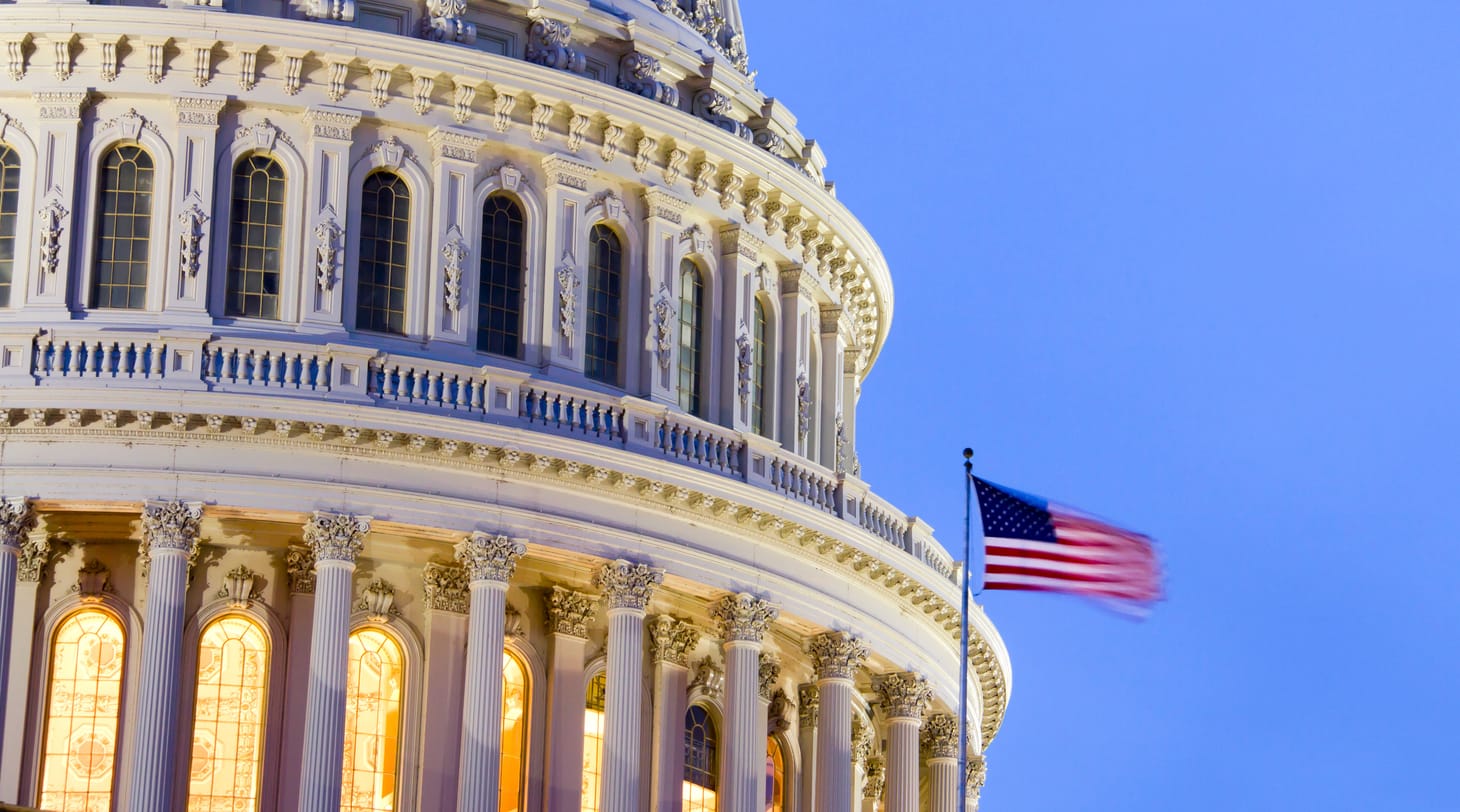
It's Thursday, Alaska—day three of the legislative session.
In this edition: In one of the first tests of the character for the Alaska delegation in the second Trump presidency, U.S. Sen. Lisa Murkowski broke from the GOP to vote against a key procedural vote to confirm Pete Hegseth as the Secretary of Defense. Meanwhile, U.S. Dan Sullivan continues to overlook serious accusations of sexual assault, alcohol abuse and general incompetence in support of what he calls Hegseth's focus on bringing "warrior culture" back to the "woke" military. Meanwhile, the Alaska Legislature's new coalition majorities have the session off to a smooth start that shows just how different the next two years in Juneau will be, which includes getting the other side of the state's bungled transportation plan.
Current mood: ☔
'Significant concerns that I cannot overlook.'
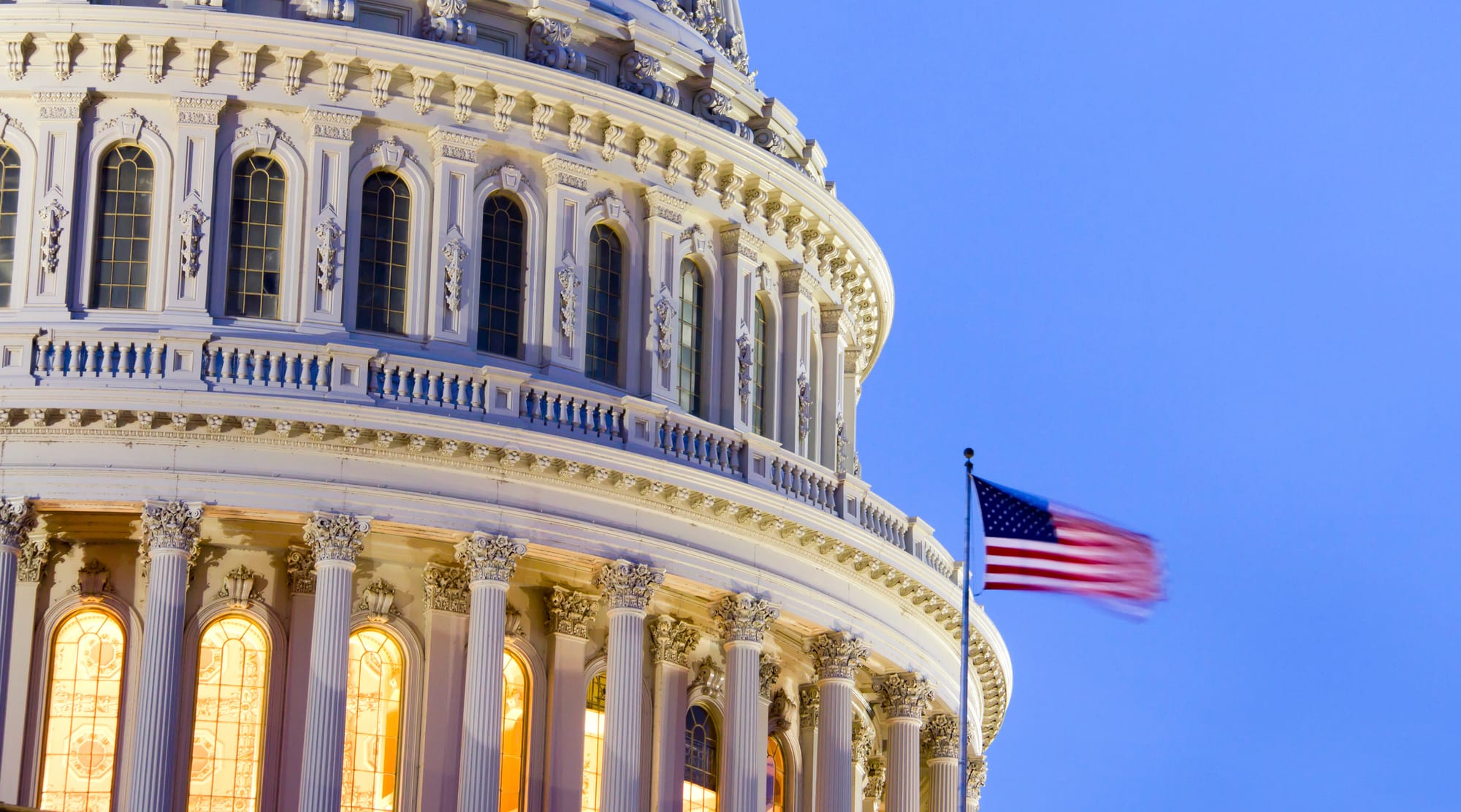
Alaska's U.S. Sen. Lisa Murkowski broke from Senate Republicans to vote against the confirmation of Pete Hegseth as Secretary of Defense today, joining fellow moderate U.S. Sen. Susan Collins in opposing a Trump pick who has faced serious allegations of violence against women, sexual assault, unchecked alcohol abuse and accusations that he mismanaged two veterans' charities.
"While the allegations of sexual assault and excessive drinking do nothing to quiet my concerns, the past behaviors Mr. Hegseth has admitted to, including infidelity on multiple occasions, demonstrate a lack of judgment that is unbecoming of someone who would lead our armed forces. These behaviors starkly contrast the values and discipline expected of servicemembers. Men and women in uniform are held accountable for such actions, and they deserve leaders who uphold these same standards," Murkowski said in a lengthy statement. "The leader of the Department of Defense must demonstrate and model the standards of behavior and character we expect of all servicemembers, and Mr. Hegseth's nomination to the role poses significant concerns that I cannot overlook."
But a 53-seat GOP majority means the 51 Republicans willing to overlook serious character flaws were able to advance Hegseth's nomination past a procedural vote Thursday afternoon. Among them is U.S. Sen. Dan Sullivan, whose obsequiousness to Trump has been well-documented by Dermot Cole. Ahead of the confirmation, Sullivan lobbed Hegseth some hokey softballs about the importance of Alaska during his confirmation hearing, later proclaiming his support for Hegseth because he's bringing the "warrior culture" back to the "woke" military.
Meanwhile, Murkowski said she worries about what confirming Hegseth—who walked back his comments about banning women from combat roles only after facing stiff pushback—would send to women in the armed services.
"Although he has recently revised his statements on women in combat since being nominated, I remain concerned about the message that confirming Mr. Hegseth sends to women currently serving and those aspiring to join," she said. "Women have served our nation with distinction, overcoming immense obstacles to excel in combat and leadership roles, and they deserve to know that their leader honors and values their commitment to our nation."
Unless other Republicans defect, Hegseth's confirmation is expected to pass by Saturday. On Tuesday, Trump fired the first female head of the U.S. Coast Guard.
Why it matters
In the big picture, the day illustrates a pretty bleak and totally unsurprising difference in the Alaska delegation's handling of Trump. As was the case in the first Trump presidency, Murkowski is one of the few willing to break ranks and call out Trump for what he is, while Sullivan and now Begich don't seem to have found the bottom of the depths they're willing to go to appease Trump. For example, Murkowski denounced Trump's pardon of the roughly 1,600 people convicted for the Jan. 6 insurrection—many who assaulted police officers—while Sullivan and U.S. Rep. Nick Begich III used it as an opportunity to blame Democrats.
“I think for those folks that President Trump chose to pardon, you know, they've served their time. They've met their obligations within his capacity to make those pardons. I mean, I think we saw some very controversial and concerning, frankly, last-minute pardons for Joe Biden's personal family members.”Begich said Tuesday, according to a report by Alaska Public Media.
Compare that to Murkowski's response:
"I strongly denounce the blanket pardons given to the violent offenders who assaulted these brave men and women in uniform," Murkowski said. "I think our many friends, the fine men and women who serve us in this building, who have had decades of service and commitment to be here to protect us, to protect this institution — I think many of them feel very violated by this. And I worry for that."
That said, while Murkowski's skepticism of Trump will likely fill plenty of headlines during the next four years, she doesn't have the same leverage she once did now that the GOP has extended its majority to 53. She'll need to find someone other than Sen. Collins if they hope to apply brakes to the Trump presidency.
'Selecting projects for us.'
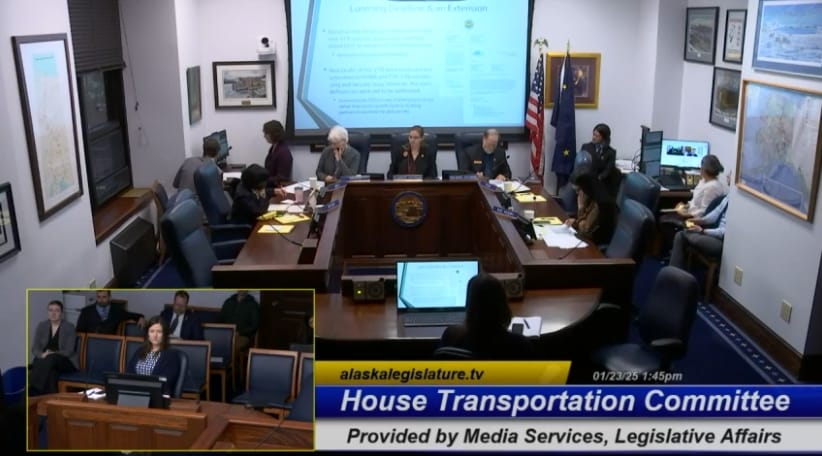
The Alaska Legislature is off to a smooth start under the returning Senate bipartisan majority and the new House coalition majority. The flip from a Republican House to a majority of Democrats, independents and moderate Republicans is proving to be as dramatic a change as we expected, which we see in the first few days of committee hearings. The control of committee chairmanships is a big part of holding a majority because it allows members to not just steer policy—elevating or squashing priorities—but set the tone for the session.
That was really on display in today's hearing of the House Transportation Committee, where legislators met with local transportation planning groups to get their perspective on the state's costly bungling of the federal State Transportation Improvement Plan last year. The STIP is essentially a roadmap that lays out to the feds how the state plans to use millions in federal infrastructure dollars on transportation projects, and the feds rejected the state's plan largely because it didn't properly weigh local transportation groups' input as required by law.
"There were new projects added to the STIP that were within our boundary that were never planned, nor included in our (local planning)," Jackson Fox, the head of the Fairbanks planning group, FMATS, told the committee. "The STIP appeared to be selecting projects for us."
And it probably won't come as a shock that those projects just happened to be related to a private mine ore haul project supported by Gov. Mike Dunleavy and allies. There were many more problems with the state's STIP, but that one is particularly emblematic of the kind of priorities and work that went into the plan.
That the feds ultimately rejected the plan, leading to a back-and-forth that landed Alaska with a fraction of its typical funding, wasn't a surprise to local planning groups, Fox said. Those groups tried to warn the state it was running afoul of the federal laws that explicitly require local approval of transportation projects and were largely ignored. But, as the feds have outlined, the rules aren't exactly optional (though, I guess, the next four years will test that).
Yet, to hear it from some Republicans last year, the blame for the blunder should be on the local groups, and they were cast as nosey, anti-development busybodies.
We didn't hear such accusations from the new House Transportation Committee, chaired by Fairbanks Rep. Ashley Carrick. However, to be fair, that's because Rep. Kevin McCabe—the former chair who has been one of the most vocal critics of the local planning groups' involvement—didn't even show up for the hearing.
Instead, the local planning groups—FMATS and the Anchorage-area group AMATS—had an opportunity to give a full rundown of their perspective on the problem and, ominously, their concerns that the state hasn't learned many lessons as it continues to work through the mess from last year's rejection. He said they're still largely in the dark about an upcoming amendment to the plan and are worried that the state is focusing on fighting the rules rather than finding a workable solution.
When asked how he's worried it'll trickle down to Fairbanks, Fox was blunt.
"What we're seeing is a lack of organization to get to a good implementation stage. It is less work on the street for our local contractors and suppliers," he said. "It definitely has an economic impact on our workforce and our families who rely on this income. If we have a historical average of $50 million a year and only see half, some folks working in that industry might be leaving our community."
While it's certainly not the entirety of the picture—the committee plans to hear from the state next week—it doesn't paint a particularly flattering portrait of the Dunleavy administration's management of the state's resources. And it's likely a picture we wouldn't have gotten had his allies still held the committee chair.
Stay tuned.
Follow the thread: The House Transportation Committee hears from local planning groups on the state's bungled transportation plan
The Alaska Memo Newsletter
Join the newsletter to receive the latest updates in your inbox.


